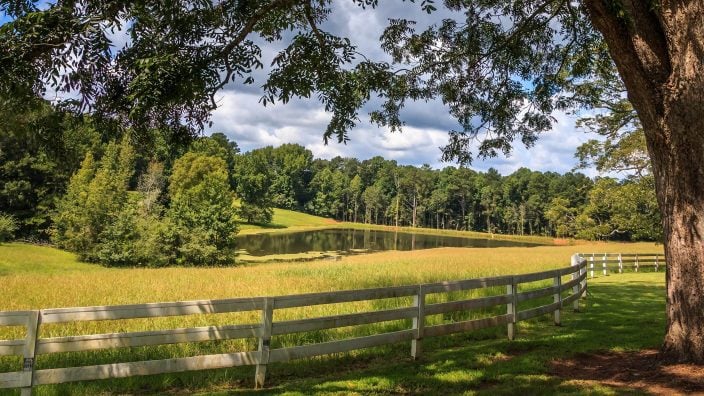AT&T Telecommunications Line Retrieval Project in Crawford and Richland Counties
It is important that the questions detailed and the full scope of the project are made clear to landowners.
Read MoreIf good fences make good neighbors, good fence laws are at least equally important. Ohio Farm Bureau Policy Counsel Leah Curtis talks about Ohio’s line fence laws: who’s responsible for what, how to handle disputes and more.
Listen to Legal with Leah, a podcast featuring Ohio Farm Bureau’s Policy Counsel Leah Curtis discussing topics impacting landowners.
Joe Cornely [00:00:00] Welcome back to Legal with Leah. I’m Joe Cornely. Glad to have you back with us. We want to talk line fence law. What is it? Why do we have it in Ohio?
Leah Curtis [00:00:12] The well, line fence law in the state of Ohio is what governs the relationship between two neighbors who have a line fence between their farms. And the reason we have it is because line fences can be a really contentious issue. You know, we can get lots of neighbors that get angry about taking care of that line fence. It’s really something that’s benefiting both of them in some cases. And so we had to have some laws to try to help people sort out that relationship.
Joe Cornely [00:00:37] Now, the line fence law was crafted, I don’t know, many, many years ago. Updated what, in 2008. You mentioned it’s there because we have fences between farms. But I think part of what changed or why we needed to modernize it is it’s not always a farm right next door anymore either.
Leah Curtis [00:00:56] Exactly. Those laws were originally written back when Ohio was all farms. And, we were really trying to fence out livestock rather than to fence it in. Over the years, they made some patches and changes and it was really confusing, especially as we have more landowners moving out to larger lots and not farming, but having those five and ten acre lots next to a farmer.
Joe Cornely [00:01:18] Well, let’s go into a little more detail. Talk about when this law is going to have to be applied.
Leah Curtis [00:01:24] So the line fence law typically applies to anybody who has that line fence or intends to put a line fence between two properties that are being used as farm outlets. So you’re actually farming the property. In some cases, it’s also going to apply to certain government actors that have property next to farmers.
Joe Cornely [00:01:41] Now, what about the situation I just brought up where it might be a homestead, but not a farm. Then is the fence solely then the farmer’s responsibility?
Leah Curtis [00:01:53] Most likely it’s going to be the farmer’s responsibility. Now, again, it’s going to kind of depend on historically what’s happened. If that line fence has always been there and there’s always been that sharing of resources between the two landowners, they may still continue that way and they can privately agree to do that as well. But the law does apply to when land is actually being used as a farm outlet.
Joe Cornely [00:02:13] A lot of maybes and could bes and what ifs. Walk us through a little bit more of that in terms of when there is a fence there, an existing fence.
Leah Curtis [00:02:25] Well, you know, Joe, a lawyer’s favorite answer is always it depends. So when we might have a fence that is built prior to 2008, that was when the new law came into play. Prior to 2008, those fences that were in place do still get maintained by the two landowners and what we call equitable shares. They can either decide what those equitable shares are between themselves, or they can ask a court or the township trustees to help them figure out what would be equitable based on their circumstances. Now, new fences that are built after 2008, those are going to be the responsibility of the landowner themselves unless their neighboring landowner wants to join in with them or their neighboring landowner puts livestock against it after they’ve built it.
Joe Cornely [00:03:06] So they can go back and the shares can be changed retroactive. Or if the property use changes, then the share cost of the fence can change as well.
Leah Curtis [00:03:17] Yeah, it could possibly, and that’s something you could decide individually by yourselves as you and your neighbor make a contract between the two of you. You can record that with the county recorder and make it enforceable. Or again, you can ask the trustees or the court to look into their six factors they’ll look at and they will decide what those equitable shares would be.
Joe Cornely [00:03:36] Let’s talk about the requirements of the actual fence. Does law stipulate, I don’t know, distance between posts and whether it has to be barbed wire or board,. Or does it get in any of that?
Leah Curtis [00:03:50] Not really. There is a standard for certain fences that are going to be housing livestock. For those new fences, the law asks for them to be a preferred partition fence. And what the law says that is, is a woven wire fence, either standard or high tensile. One or two strands of barbed wire located not less than 48 inches from the ground or a non-electric high tensile of at least seven strands that complies with NRCS conservation codes. Again, though, landowners can always agree to change that up. So if you and your neighbor want to do a different type of fence and have different standards, you can certainly agree to do that yourselves.
Joe Cornely [00:04:28] Now, what if I’m going to put a fence up? My neighbor is not going to be cooperating, and I’m okay with that. But I still want to get my fence up. Be hard to build a fence if I’m only standing on my side of the property line.
Leah Curtis [00:04:43] It is and that’s one problem that we saw a lot with line fences and why the the law got amended back in 2008. So if you are building that new fence, it’s solely your responsibility to pay for it and do it. But the law allows you up to ten feet onto that neighboring property to build and maintain the fence and to not consider you a trespasser. So you will be able to kind of enter up to that ten feet and do that. Now, if you make any damages to that property, if you cut down their trees or their corn, you will be liable for those damages. But you couldn’t be arrested for trespassing and doing that.
Joe Cornely [00:05:13] So as much as we’d like to think we’re going to get along with our neighbors, doesn’t always happen. Is there a complaint or I don’t know, conflict resolution process?
Leah Curtis [00:05:23] There is. And there’s actually two options. So the first option is going through the township trustees. You can ask the township trustees to work through any problems you’re having with a neighbor on a line fence, be that determining equitable shares, getting noxious weeds cut down and they will come and look at the fence and make a decision for you. That decision is then appealable through binding arbitration. The other process is through the Court of Common Pleas in your county. You can go to the court again, same thing. Ask them to decide those problems and they will be able to decide those for you. And again, those are appealable through the court process.
Joe Cornely [00:05:55] You mentioned noxious weeds. Is there a requirement for maintenance along fence lines?
Leah Curtis [00:05:59] Yeah, you do need to keep noxious weeds clear of those fence lines. So, you know, those are things like thistles and multiflower rose. Those are things you need to try to keep clean from the fence line. And that just prevents the fence from, you know, deteriorating simply because of those weeds.
Joe Cornely [00:06:14] Anything we need to mention in the case where a fence might be coming out?
Leah Curtis [00:06:18] If you have a fence that you want to remove, you do need to let your neighboring landowner know that prior to removing it. And that is because your neighboring landowner may have a property interest in that fence. If they’ve been using that fence or relying on that fence, you need to give them at least 28 days notice. If you don’t do that, you would forfeit any possible reimbursement if you later build a fence and they put livestock against it. You couldn’t get that if you hadn’t let them know.
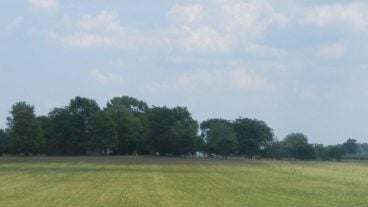
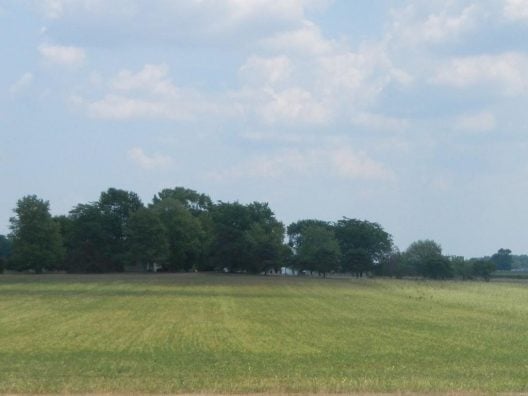
It is important that the questions detailed and the full scope of the project are made clear to landowners.
Read More
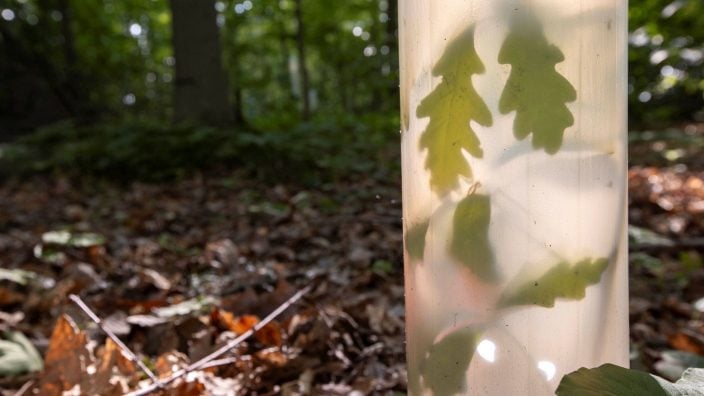
Overall, proper care, maintenance and communication are all essential parts of the process when it comes to trees.
Read More

Farm Bureau staff and members testified on behalf of an annexation bill that aims to preserve farmland in the state by having a more transparent annexation process.
Read More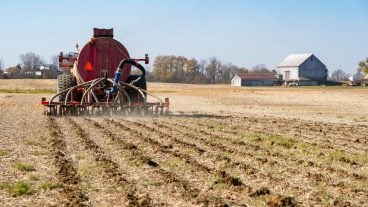
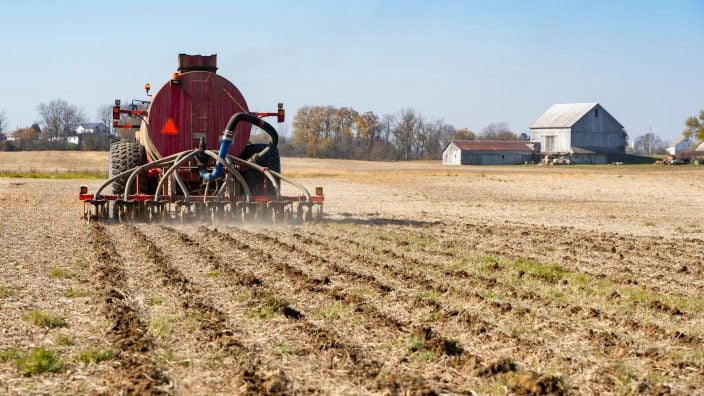
Current Agricultural Use Value is often discussed as a farmland preservation tool, but there are some other tools in the law that landowners can consider.
Read More
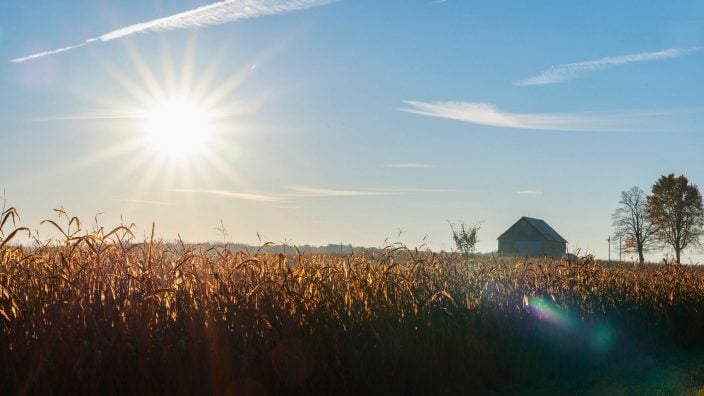
The plan provides a blueprint for policymakers and Ohio Farm Bureau members to bolster Ohio’s agriculture industry and our rural communities.
Read More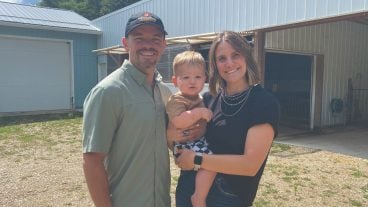
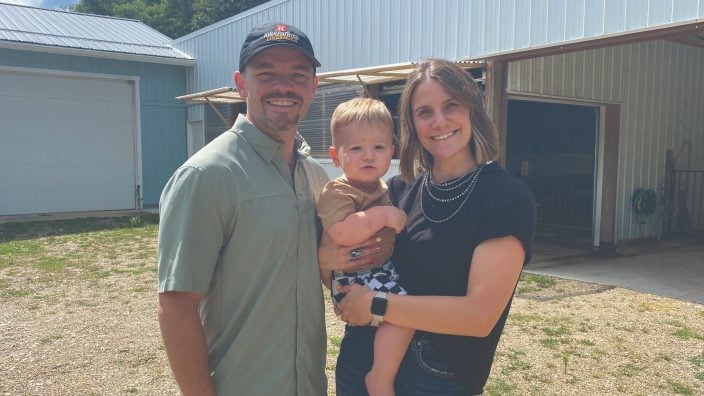
Ohio Farm Bureau’s Energy and Utility Resource Guide can point landowners in the right direction when it comes to easement considerations.
Read More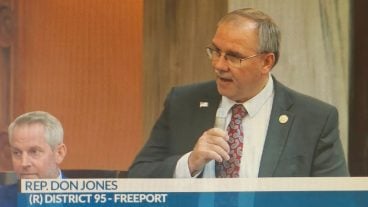
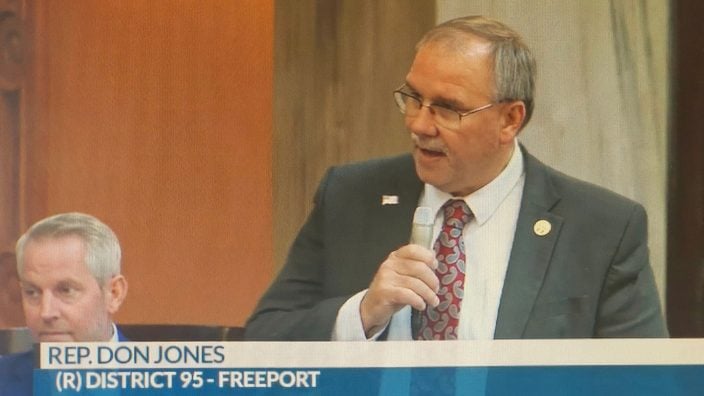
The bills address the shortage of career tech educators and the nuisance issue of feral swine.
Read More

In the case O’Connor v. Eubanks, the question is, can a state be sued in federal court when it takes a property?
Read More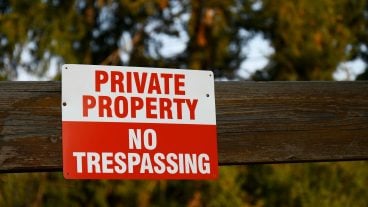
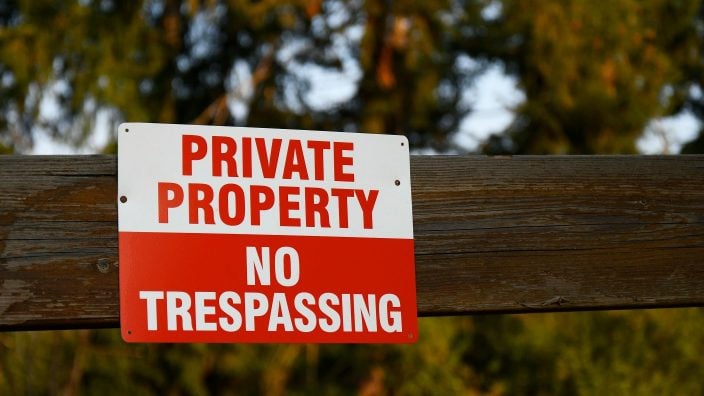
Policy Counsel Leah Curtis discusses Ohio trespassing laws and the liability that can fall on landowners when people enter their property.
Read More
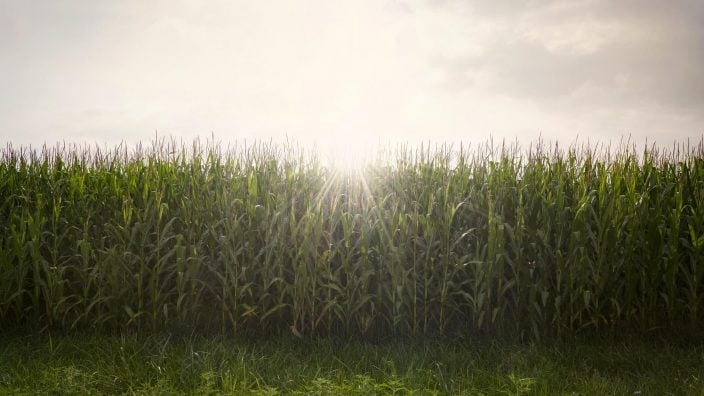
The 3rd District Court of Appeals ruled that Columbia Gas of Ohio did not demonstrate that taking of the property was a necessity, and that further review was warranted of the agricultural easement issue.
Read More